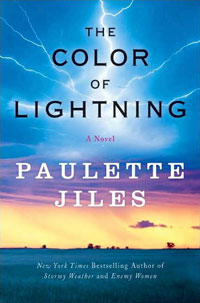Best Western

As a young American, I was never enamored of the so-called horse operas that populated the airwaves in the ‘50s and ‘60s: Roy Rogers, Gene Autry, The Cisco Kid, Gunsmoke, Rawhide, The Rifleman, Bonanza, (Maverick and Have Gun—Will Travel excepted). What these stories had in common was the demonization of First Americans and the notion that good and evil were easily identifiable (a far cry from HBO’s recent revisionist take on the Wild West, Deadwood). Contemporary literary fiction has joined the recasting with a more accurate picture of the frontier: Thomas Berger’s Little Big Man, Percival Everett’sGod’s Country, James Carlos Blake’s In the Rogue Blood, Pete Dexter’s Deadwood, and of course, Larry McMurtry’s Lonesome Dove books. Yet—except for Berger—we are rarely given insight into the First People’s culture, mores, and worldview. Brian Hall’s excellent and gripping (though awkwardly titled) I Should Be Extremely Happy in Your Company: A Novel of Lewis and Clark is a vivid and plausible presentation of Sacagawea, especially effective in rendering the Indian guide’s point of view in a language-neutral way (meaning, we are clear her cognition is demarcated by English). Now comes Paulette Jiles’s The Color of Lightning (William Morrow), which follows Kentucky ex-slave Britt Johnson as he takes his family to east Texas at the end of the Civil War. Johnson, who intends to build up a freight hauling business, is away from his family when they are raided and captured by Comanche and Kiowa. His eldest son is killed and his wife and two younger children undergo the harrowing experience of being held captive in an experiential universe totally alien to them. Jiles’s rendering of that world, the elegant and simple prose, and a steadily forward-moving narrative makes this a novel that delivers on many levels. Add an ensemble of capable characters and this, Jiles’s third novel, is nearly perfect.
